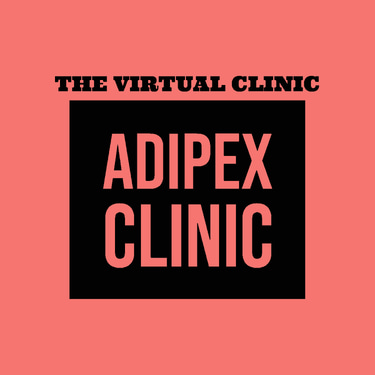The Connection Between Diet and Dementia: Essential Knowledge for Your Weight Loss Clinic


In recent years, the connection between diet and overall health has become increasingly evident. A growing body of research now highlights the link between diet and cognitive function, particularly the risk of developing dementia. For weight loss clinics, understanding this connection can enhance the comprehensive care offered to clients, emphasizing not only physical fitness but also long-term mental health. This article explores the intricate relationship between diet and dementia, offering insights and practical advice for integrating these findings into your weight loss programs.
Understanding Dementia
Dementia is a general term used to describe a decline in cognitive function severe enough to interfere with daily life. Alzheimer's disease is the most common type of dementia, followed by vascular dementia. Symptoms include memory loss, confusion, difficulty with language, and impaired reasoning. While the exact cause of dementia remains unclear, several risk factors have been identified, including age, genetics, and lifestyle choices.
The Role of Diet in Cognitive Health
Emerging research suggests that diet plays a significant role in brain health and the risk of developing dementia. Certain dietary patterns have been associated with improved cognitive function and a reduced risk of cognitive decline.
Key Dietary Patterns Linked to Brain Health
The Mediterranean Diet
The Mediterranean diet is rich in fruits, vegetables, whole grains, fish, and healthy fats, such as olive oil. This diet has been extensively studied and is associated with numerous health benefits, including improved cardiovascular health and reduced inflammation. Research also suggests that adhering to a Mediterranean diet may help protect against cognitive decline and reduce the risk of dementia.
The DASH Diet
The Dietary Approaches to Stop Hypertension (DASH) diet is designed to lower blood pressure and emphasizes fruits, vegetables, whole grains, lean proteins, and low-fat dairy products. Studies have shown that the DASH diet can also benefit brain health. When combined with the Mediterranean diet, forming the MIND diet (Mediterranean-DASH Intervention for Neurodegenerative Delay), it has been specifically linked to a lower risk of Alzheimer's disease.
The MIND Diet
The MIND diet combines elements of the Mediterranean and DASH diets, focusing on foods that have been shown to support brain health. It emphasizes green leafy vegetables, berries, nuts, whole grains, olive oil, fish, beans, and poultry, while limiting red meat, butter, cheese, pastries, sweets, and fried or fast food. Research indicates that the MIND diet can slow cognitive decline and lower the risk of Alzheimer's disease.
Nutrients That Support Cognitive Health
Several nutrients have been identified as particularly beneficial for brain health. Ensuring that your clients' diets are rich in these nutrients can help support their cognitive function and potentially reduce the risk of dementia.
Omega-3 Fatty Acids
Omega-3 fatty acids, found in fatty fish like salmon, mackerel, and sardines, as well as in flaxseeds and walnuts, are essential for brain health. They have anti-inflammatory properties and have been shown to support cognitive function and reduce the risk of Alzheimer's disease.
Antioxidants
Antioxidants, such as vitamins C and E, and flavonoids found in fruits and vegetables, help protect the brain from oxidative stress and inflammation. Berries, citrus fruits, nuts, and dark leafy greens are excellent sources of antioxidants.
B Vitamins
B vitamins, including B6, B12, and folate, are crucial for brain health. They help reduce homocysteine levels, an amino acid linked to cognitive decline. Good sources of B vitamins include whole grains, beans, eggs, and leafy green vegetables.
Vitamin D
Vitamin D plays a role in brain health and cognitive function. Deficiency in vitamin D has been linked to an increased risk of dementia. Sun exposure, fatty fish, and fortified foods are good sources of vitamin D.
Implementing Brain-Healthy Diets in Your Weight Loss Clinic
As a weight loss clinic, you have the unique opportunity to integrate brain-healthy dietary practices into your programs. Here are some practical steps to help your clients improve their cognitive health through diet:
1. Educate Clients on Brain-Healthy Foods
Provide educational materials and resources about the benefits of brain-healthy foods. Explain how certain nutrients can support cognitive function and reduce the risk of dementia. Emphasize the importance of a balanced diet that includes a variety of nutrient-rich foods.
2. Incorporate Brain-Healthy Recipes
Develop and share recipes that incorporate brain-healthy ingredients. Focus on creating meals that are not only nutritious but also delicious and easy to prepare. Encourage clients to try new foods and experiment with different flavors.
3. Offer Cooking Classes and Workshops
Organize cooking classes and workshops that teach clients how to prepare brain-healthy meals. Demonstrate simple cooking techniques and provide tips for making healthy food choices. Hands-on learning can be an effective way to engage clients and help them develop new skills.
4. Personalize Nutrition Plans
Tailor nutrition plans to meet the individual needs of your clients. Consider their dietary preferences, health conditions, and cognitive health goals. Personalized plans can help clients stay motivated and achieve better results.
5. Monitor Progress and Provide Support
Regularly monitor your clients' progress and provide ongoing support. Encourage them to track their food intake and note any changes in their cognitive function. Offer positive reinforcement and adjust their nutrition plans as needed.
The Role of Physical Activity in Cognitive Health
In addition to diet, physical activity is a critical component of cognitive health. Regular exercise has been shown to improve brain function, reduce the risk of cognitive decline, and enhance overall well-being.
Types of Exercise Beneficial for Brain Health
Aerobic Exercise
Aerobic exercise, such as walking, jogging, cycling, and swimming, increases blood flow to the brain and promotes the growth of new neurons. Aim for at least 150 minutes of moderate aerobic activity per week.
Strength Training
Strength training exercises, such as lifting weights or using resistance bands, help maintain muscle mass and improve overall physical function. Include strength training exercises at least two days per week.
Flexibility and Balance Exercises
Activities like yoga and tai chi improve flexibility, balance, and coordination, which are important for preventing falls and maintaining mobility. These exercises also promote relaxation and reduce stress.
Integrating Physical Activity into Your Weight Loss Programs
Encourage your clients to incorporate regular physical activity into their daily routines. Offer exercise classes, provide workout plans, and suggest ways to stay active outside the gym. Emphasize the cognitive benefits of exercise and how it complements a brain-healthy diet.
Addressing Common Barriers to Healthy Eating and Exercise
Many clients may face barriers to adopting a brain-healthy diet and regular exercise. Addressing these challenges can help them stay on track and achieve their health goals.
Time Constraints
Busy schedules can make it difficult for clients to prepare healthy meals and exercise regularly. Offer tips for meal planning, quick recipes, and time-efficient workouts. Encourage clients to prioritize their health and make small, manageable changes.
Limited Access to Healthy Foods
Some clients may have limited access to fresh, healthy foods due to geographic or financial constraints. Provide information on affordable, nutritious options and suggest local resources, such as farmers' markets or community gardens.
Lack of Knowledge or Skills
Clients may lack the knowledge or skills needed to make healthy choices. Offer educational resources, cooking classes, and one-on-one counseling to help them build confidence and develop new habits.
Motivation and Support
Staying motivated can be challenging, especially when progress is slow. Provide regular support, celebrate small successes, and create a sense of community within your clinic. Encourage clients to set realistic goals and stay focused on their long-term health.
The Importance of Early Intervention and Prevention
Early intervention and prevention are crucial in reducing the risk of dementia. By promoting brain-healthy diets and regular physical activity, your weight loss clinic can play a vital role in helping clients maintain their cognitive health and overall well-being.
Screening and Assessments
Incorporate cognitive health screenings and assessments into your programs. Identify clients who may be at risk for cognitive decline and provide targeted interventions. Early detection can lead to more effective prevention strategies.
Collaboration with Healthcare Providers
Collaborate with healthcare providers to ensure comprehensive care for your clients. Work together to develop personalized plans that address both physical and cognitive health. Communication and coordination can improve outcomes and support long-term success.
Conclusion
The connection between diet and dementia underscores the importance of a holistic approach to health and wellness. As a weight loss clinic, you have the opportunity to make a significant impact on your clients' cognitive health by promoting brain-healthy diets and regular physical activity. By educating clients, offering personalized support, and addressing common barriers, you can help them achieve their health goals and reduce their risk of dementia. Early intervention and prevention are key, and your efforts can contribute to a healthier, more vibrant community.
